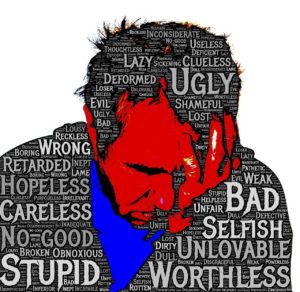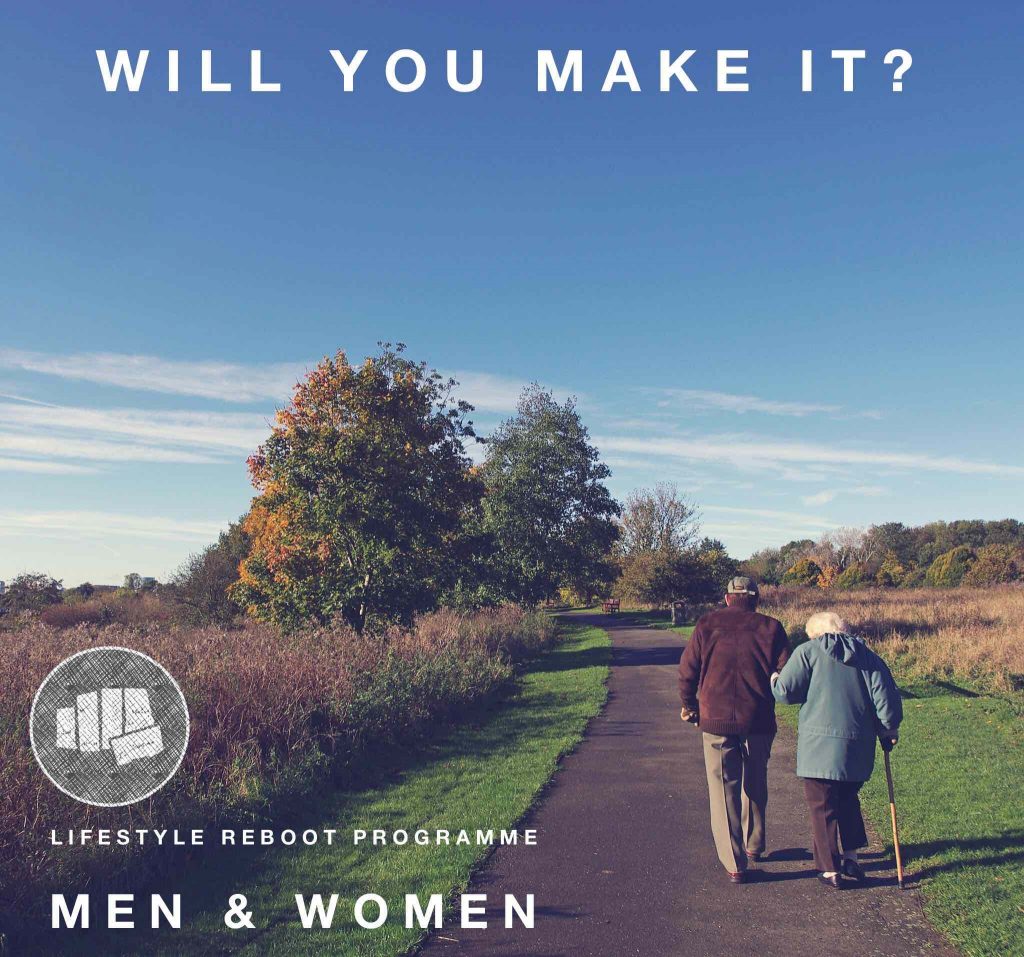[WARNING – you will need 10 minutes for this– but for those who are consistently TRYING to be happier, less anxious, less tense… perhaps I can give you some small breakthroughs]
Lets call her “ Mary”
Mary on the outside was a successful accountant for a well-known high-street company.
She also felt trapped as she sat staring out across the open office space at about 3 in the afternoon, tired, stressed, exhausted and miserable.
“Why do I feel so busy but never achieve anything? Why can’t I just get on with this bloody project? Why is it so hard to come a decision?
“What’s wrong with me? I’m so exhausted I can barely think straight”
Mary had been beaten herself up with self-critical thoughts for a good hour.
Before that she’d had a long conversation with her daughters teacher, about her schooling, then in a rush phoned the builder to find out where he was as the unfinished extension was causing incredible stress at home.
Now she was staring at the computer, munching on a vending machine chocolate bar as she didn’t have time for lunch.
The demands on Mary’s life had been building steadily worse for months.
Work was becoming unbearable, late hours, more workload. Nights had become interrupted, days more drowsy.
She started to ache a bit more.
Life had begun to loose a little bit of its joy.
Of course, Mary had felt like this before with exams and big life events…but she never guessed it would be such a permanent feature of her life nowadays
She kept asking herself over and over: Why do I feel so lethargic, I should be happy. I used to be. What’s become of my life?
SO WHY DO WE ATTACK OURSELVES?
If you’d asked Mary how she felt staring at her laptop she’d have probably said “ exhausted” or “ tense”.
Mary’s first reaction would probably be to see these feelings as fact.
But if she looked a little more closely, she probably wouldn’t be able to distinguish one thing as exhaustion or tension.
Both of these EMOTIONS are actually a very complex mix of thoughts, feelings, body sensations and impulses.
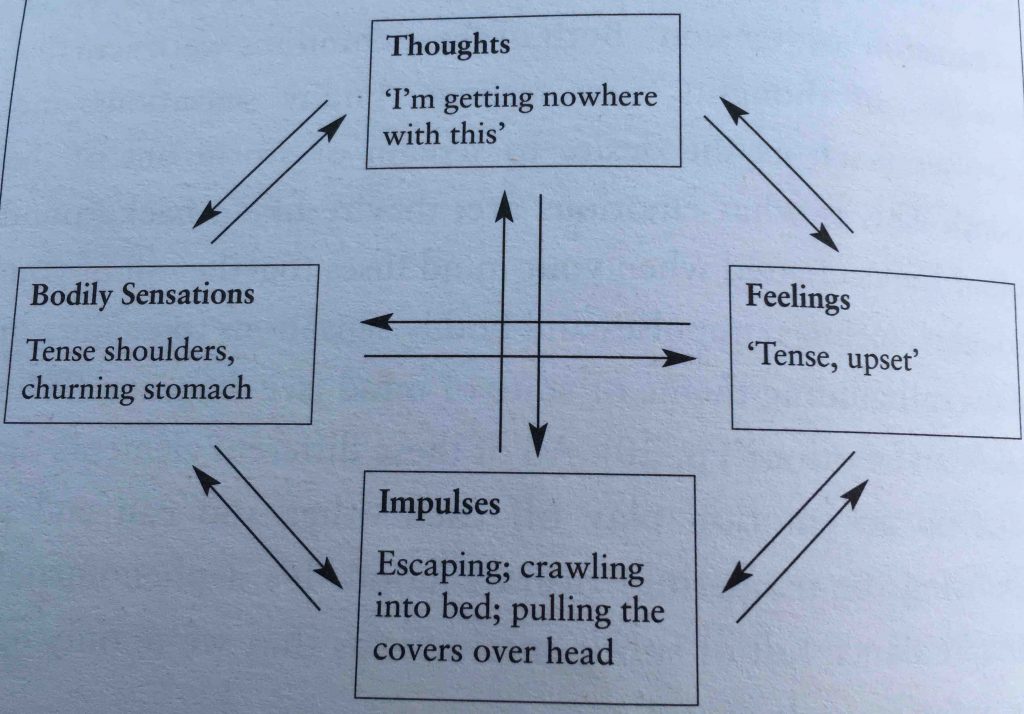
And this is kinda what emotions are and all of the different elements feed and play off each other and each one of the elements can end up enhancing or depressing an overall mood.
It’s only fairly recently that science is telling us that its not just moods and thoughts that feed off each other to wreck well being – your body gets involved too.
Why? Well the mind does not just exist in isolation. In fact, what our body feels is fed from our thoughts and emotions.
Everything we think is informed from what’s going on in the body.
The GOOD NEWS
Research is telling us that our WHOLE OUTLOOK ON LIFE can be shifted by tiny changes in the body.
Something as subtle as frowning, or smiling can have a huge impact on mood.
Something as subtle as going out for a walk, or maybe doing a 10-minute workout in your kitchen can dramatically change your mood.
BODY | ADVENTURE | MIND – its why we look at all three in Brawd and Ms.Fit too.
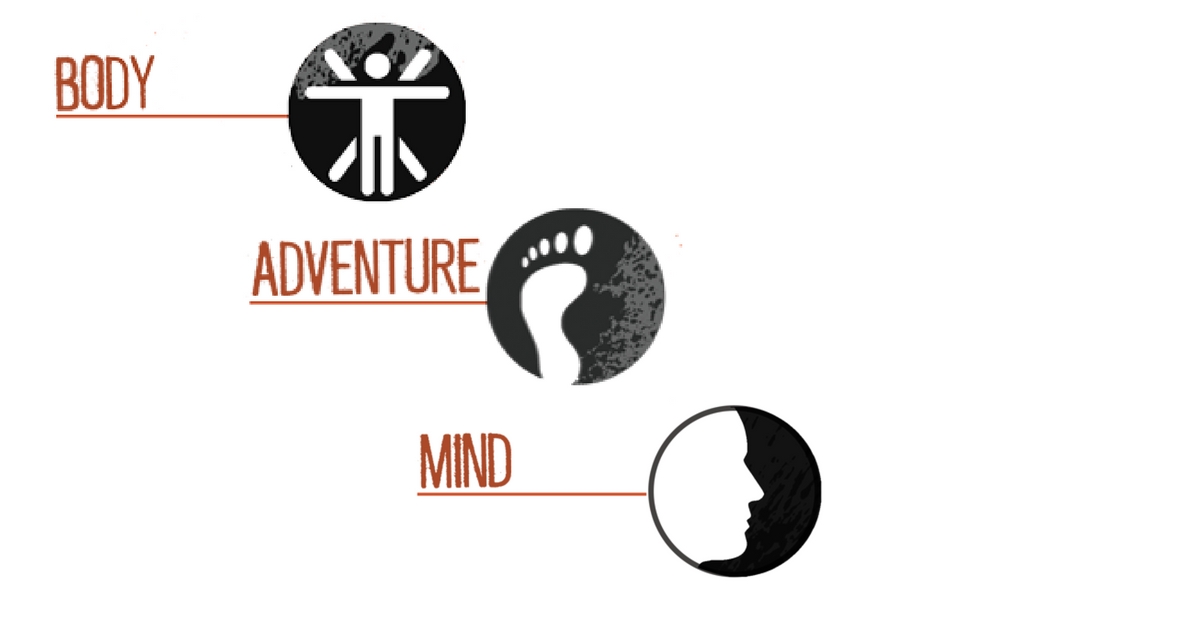
Focus on improving one and it affects the other.
Back to the plot…
It’s obvious that you smile when happy…But not so obvious that actually smiling can make you happy
TRY IT NOW
Something happens doesn’t it!
Smiling is also infectious.. Remember the last time someone came beaming into a room?
Think about that for a moment
Just the act of smiling can make (even forced) can make you happy

As I said above. It’s infectious..
You’re having a shit day… you go on the school run and pick up your sibling… He or she comes beaming out with energy, vitality and a big smile…..
Even if you are having a really bad day, its quite hard NOT to smile or at least feel a wave of happiness for a moment…

THE BAD NEWS
There is an equal and opposite vicious cycle too.
When we feel threatened we either tense up or run away.
Fight or flight as you have probably all heard a million times.. don’t worry I’m getting to the good bit.
However, do you know that this (fight or flight) or just tension isn’t actually a conscious decision you make?
It’s actually controlled by a very primitive part of the brain (maybe you’ve come across this before as maybe your ‘chimp’ or lizard brain)
Anyway, this part of the brain is fairly simple which means it takes a fairy black and white view of the way it interprets DANGER or a threat.
AND HERE IS THE FASCINATING PART
It doesn’t care if this is an external threat(someone about to mug you) or internal threat (a troubled memory or future worry).
Your body senses the threat and whether real or imagined, prepares itself (stomach noises, sweating, tension in shoulders…)
Therefore in reality, if you’re feeling stressed or exhausted, just a little shift in emotions can end up ruining your whole day or tip you into a deeper more prolonged period of low mood or worry.
Sometimes these shifts appear out of the blue too.
(It used to happen to me quite a lot. One minute the world was rosy… then one comment on facebook and I’d be into a world of angst and self doubt….)
You may then ask yourself
WHY AM I SO UNHAPPY? What’s wrong with me today? Where have I gone wrong?
So what I’m saying is that if we feel stressed or in danger, our minds are really good (in fact, remarkably amazing) at digging up memories of when we felt threatened in the past… it then creates scenarios of what might happen in the future, especially if we can’t explain what is going on now (anxieties favourite)
- [BREAKTHROUGH 0] Therefore the way we REACT can transform temporary and fleeting non-problematic emotions into more persistent and troubling ones.
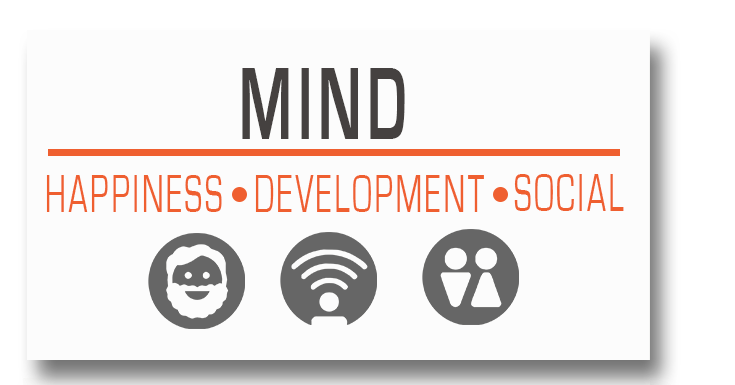
This holds true for everyday feelings as well.
As you read this, see if you can tune into any feelings of tiredness?
Any aches or pains or thoughts of tiredness? So so so tired you just need your bed…
Spend a little moment noticing how tired you are feeling.
Once you have this on your mind ask yourself some questions about it.
Why am I feeling so tired? What’s gone wrong? What does all this say about me that I’m feeling like this? What will happen if I’m always tired?
Why? What’s wrong? What will the consequences be? Why?
Now… how do you feel? You probably feel worse as I certainly do.
- [BREAKTHROUGH 1] – THIS IS BECAUSE UNDERLYING THESE QUESTIONS THERE IS AN UNDERLYING DESIRE to get rid of tiredness and to do so you try to work out the reasons for it, its meaning, its possible outcomes and consequences if you don’t.
The UNDERSTANDABLE natural impulse to explain or banish tiredness has made you feel more tired.
- [BREAKTHROUGH 2] – This also holds true for a whole range of human emotions and feelings including unhappiness, stress and anxiety.
When we are unhappy it’s natural to figure out why we are feeling this way and to find a way of fixing or solving the problem.
- [BREAKTHROUGH 3} – BUT… tension, unhappiness or exhaustion aren’t problems that can be solved. THEY ARE EMOTIONS.
READ THAT AGAIN and AGAIN and AGAIN.
They reflect states of mind and Body and as such they cannot be solved – only felt
- [BREAKTHROUGH 4] – Once you’ve felt them, that is, acknowledged their existence – and let go of the tendency to explain or get rid of them, they are much more likely to vanish naturally – a bit like trying really hard to get to sleep.
Don’t worry if you’re thinking “ yeah, easier said than done” as yes it does take a bit of training but what I’m telling you is that there is another CHOICE for you.
Soooooooo….. we now kinda know
WHY WE ATTACK OURSELVES? Right?
Ok – a little bit more.
SO WHAT DO I BLOODY DO THEN LLOYDY as I’m stressed as f**!
- (THE BREAKTHROUGH) – and this changed everything for me.
Allow me to explain a rather nonconformist idea..
When you try and solve the problem of unhappiness or any negative emotion you deploy one of the minds most powerful tools: rational critical thinking.
It works like this: you see yourself in an unhappy place and know where you want to get to (a happy place).
Your mind then analyses the gap between the two and tries to work out the best way of bridging it.
To do this your mind uses DOING mode (so called as it performs well at getting things done).
The doing mode works progressively by narrowing the gap between where you are and where you want to be. It does so by subconsciously breaking down the problem into pieces, each of which is solved in your minds eye and the solution reanalysed to see whether it’s got you closer to your goal.
Amazingly, this happens in an instant and we are frequently not even aware of this process.
It’s a tremendously powerful way of solving problems.
Its how we find our way through hectic work schedules drive cars across cities, build pyramids and navigate the world by the stars. It really helps us humans resolve the most pressing of world problems.
Isn’t it then perfectly natural then to apply this approach to solving unhappiness? Or tension or anxiety or……
But it’s often the worst thing you can do because it requires you to focus on the gap between how you are how you would like to be.
In doing so, you ask such critical questions..
“What’s wrong with me? Where did I go wrong? Why do I always make the same mistakes?
Such questions are not only harsh and self destructive, but they also demand that the mind furnishes the evidence to explain its discontent. And the mind is truly brilliant at providing such evidence…such evidence of previous discontent.
Imagine walking along the beach one spring day. You’re happy.
But for some reason a flicker of sadness ripples across your mind.
It may be as a result of hunger because you skipped breakfast? Perhaps you unwittingly triggering an unhappy memory?
After a few minutes you start to feel a little down.
As soon as you notice the lowered mode you begin to ask yourself: It’s lovely here. It’s a beautiful beach. I wish I were feeling happier than I was right now.
Think about that for a moment “I wish I was feeling happier”
How do you feel? You probably feel worse and this is because you have focused on the gap between how you feel and how you want to feel.
Focusing on the gap highlighted it.
The mind sees the gap as a problem to be solved.
And this approach is disastrous when it comes to your emotions because of the intricate interconnections between thoughts, emotions and bodily sensations.
They all feed into each other and left unchecked can drive your thinking in very distressing directions.
Very quickly you can become trapped in your own thoughts. You begin to overthink, you begin to brood or ruminate.
You start to ask yourself endlessly the same questions that demand an immediate answer.
Your spirits sink, your body language changes, you may frown and feel downhearted.
A few aches and pains may appear. These sensations then feed back into your mind, which feels even more threatened.
If you sink far enough, you’ll start to become really preoccupied and miss the small and beautiful things in life….the things that normally cheer you up and bolster your mood: you may fail to notice the sound of the sea lapping on the shore, the dogs playing on the beach.. the innocent smiles of children.
Of course, no one broods over problems as they see it as a toxic way of thinking.
We generally believe if we worry enough about our unhappiness, we will eventually find a solution. We just need to make one last heave – think a little more about the problem.
But research now shows the opposite:
The evidence is clear: brooding is the problem, not the solution
Escaping the vicious cycle?
More on this in my next post
Lloydy
Ps – I’ll also tell you how to DOUBLE your life expectancy…
pps – You’ll be able to interact with me in person in the Lifestyle Reboot Programme where I’ll explore this in more depth.
Find out more by clicking the picture below

